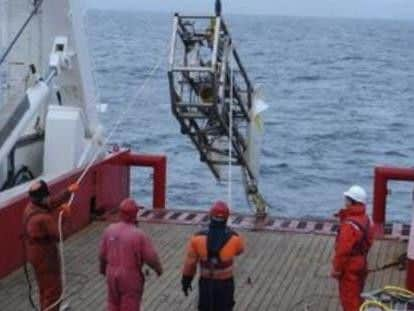Scientists find vast reserves of 'cleaner gas' across Europe
Scientists from the University of Southampton have led the research to map sites containing gas hydrate.
They have found reserves in several locations including off Ireland, Greenland, Norway, the Mediterranean, the Sea of Marmara, the Black Sea and the Arctic archipelago of Svalbard.
Advertisement
Hide AdAdvertisement
Hide AdA university spokesman said: "Vast amounts of natural gas are stored in an ice-like form beneath the seabed, under the deep seafloor, close to the edge of the land masses that form our continents.


"This gas hydrate, sometimes known as 'ice that burns', has the potential to play a role as a substitute for coal in the coming decades, until there is sufficient renewable energy to meet society's demands."
Professor Tim Minshull, who led a 31-strong team from 14 countries, said: "We found that gas hydrate is particularly widespread around Svalbard, off Norway, and in the Black Sea, but the hydrate systems have only been well investigated in a few areas, so there could be much still to discover.
"Exploiting gas hydrate deposits safely and efficiently presents challenges, for example, converting the hydrate to gas without using up too much energy. But several large feasibility projects are exploring these and other factors."
The study, published in the journal Marine and Petroleum Geology, also points out that the hydrate inventory is important as climate change could cause the hydrate to melt, releasing methane which could change the chemical balance of the oceans.
The inventory of gas hydrate deposits was undertaken as part of MIGRATE (Marine Gas Hydrates: An Indigenous Resource of Natural Gas for Europe), a project funded by the European
Commission and led by the GEOMAR Helmholtz Centre for Ocean Research, Kiel.
